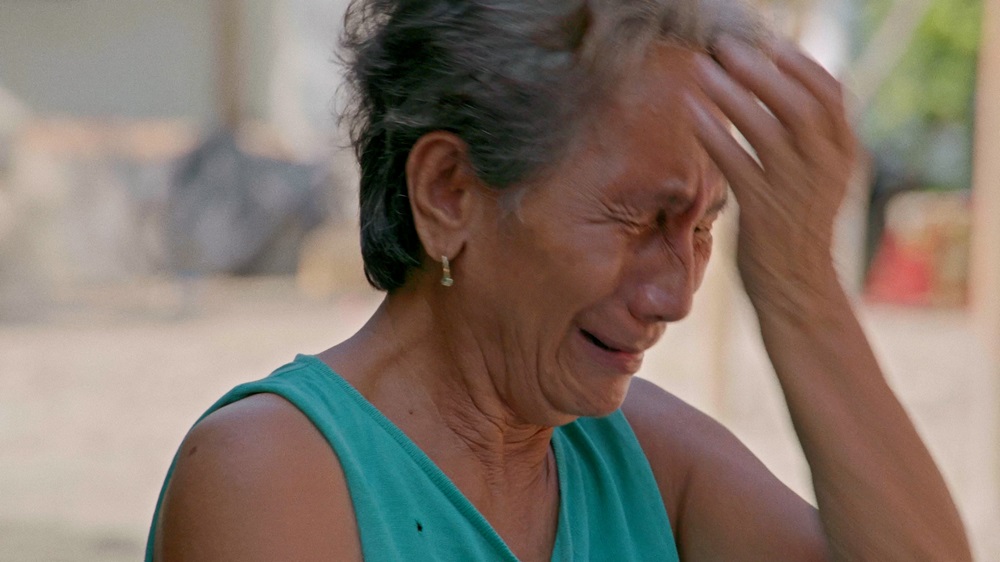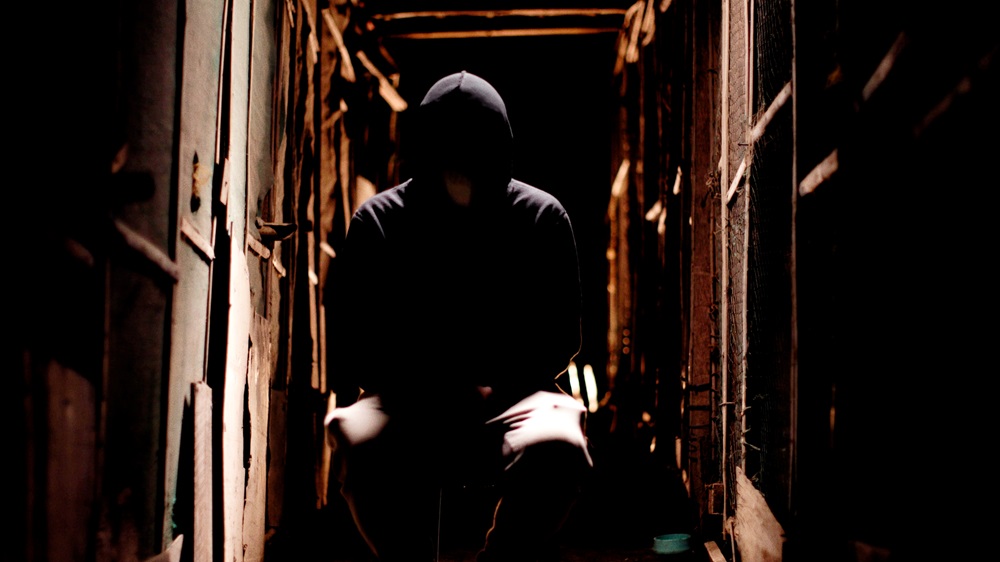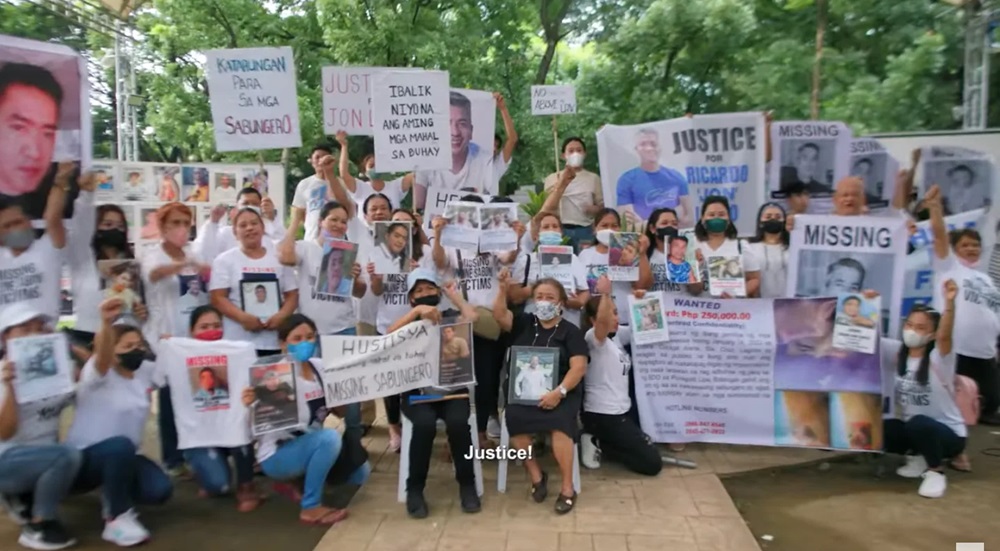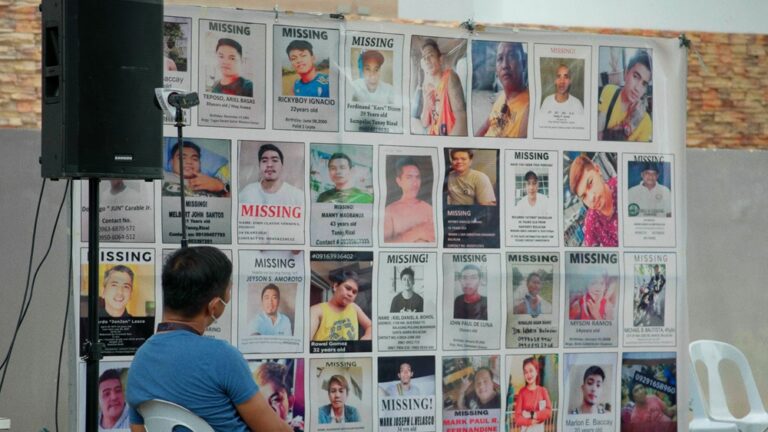Bryan Kristoffer Brazil’s “Lost Sabungeros” is a daring documentary that delves into one of the Philippines’ most unsettling unsolved cases in recent years, the disappearance of 34 cockfighters, or sabungeros, from different parts of the country between 2021 and 2022. The film follows families as they pursue answers—despite authorities seeming ready to move on—and as they question whether justice in their country is accessible to anyone but the powerful.
By capturing both the cultural backdrop of sabong (cockfighting) and the emotional toll on families left behind, Brazil and his team bring forward a story that packs a sense of urgency and a broader reflection on a justice system that often fails those without influence.
More QCinema Coverage: ‘All We Imagine as Light’ Meditating on the Persistence—Despite the Impermanence—of ‘Home’
A Centuries-Old Bloodsport and a Modern-Day Mystery
Sabong has long been a staple of Filipino culture, a centuries-old practice combining entertainment with social camaraderie. Here, the audiences place their bets on the winning rooster, making the sport a haven for gamblers and hustlers.
When the Covid-19 pandemic hit, cockfighting shifted to online platforms, creating a highly profitable yet more dangerous industry of e-sabong. This digital shift turned fatal when 34 sabungeros vanished mysteriously—some abducted from their homes by armed men, others from cockfighting arenas.
Despite extensive investigations by the Department of Justice, Philippine National Police, and the National Bureau of Investigation, as well as hearings in the Senate, not a single missing sabungero has been located. Brazil’s film bravely reopens this mystery, capturing families’ endless pursuit of truth, even as the public and authorities seem ready to abandon the case.

“Is Justice Really Only for the Rich?”
The story of “Lost Sabungeros” is anchored by the real lives of its central characters, families and loved ones who refuse to give up on finding those they’ve lost. Among them are the families of John Claude Inonog, a driver last seen traveling to an event at the Manila Arena to transport cockfighters; Ricardo “Jon Jon” Lasco, abducted from his home by armed men; and Edgar Malaca, a local town deputy who disappeared after attending a cockfight.
Inonog’s father, visibly distraught, pleads in the film for his son’s return, saying, “We don’t want trouble, because we will never win.” Statements like these capture the helplessness these families feel, especially as they try to seek justice in a system where wealth and connections often carry more influence than truth.
While the film builds empathy for these families, “Lost Sabungeros” also sheds light on the larger issue of unchecked power. Malaca’s mother asks at one point in the film, “Is justice really only for the rich?” As the film’s central theme, these disappearances—happening if not in broad daylight then in the open, and left unsolved after years—echo the broader culture of impunity within the Philippines. The filmmakers drive their point loud and clear that the pain inflicted on these families is inseparable from the deep-seated societal issues that surround them.
More QCinema Coverage: ‘The Count of Monte Cristo’: A Thoughtful, If Rushed, Study of Revenge and Redemption
Highs and Lows of a Televisual Approach
As an investigative piece, “Lost Sabungeros” excels in its detailed research and dedication to uncovering hard truths—a testament to Brazil and the whole team’s experience working at GMA Public Affairs, known for producing high-quality, fact-driven journalism. Over two years in the making, the documentary pieces together a narrative with raw interviews, archival footage, and moments of everyday anguish.
Nonetheless, the film sometimes stumbles under the weight of its own storytelling choices. There are scenes that lean into melodrama which, while impactful for television, can come across as heavy-handed in a documentary. On the other hand, some of the visual choices (blood effects over the photos of the missing, half-baked performances of some actors in reenactment scenes, gruesome eyewitness accounts luridly rendered in animation), feel heavy-handed, even as they attempt to heighten the gravity of the material.
The whistleblower character “Angelo” adds another layer of intrigue, though some viewers may find his inclusion feels staged. While Angelo provides insight into what may have happened to the missing sabungeros, his statements don’t advance the case in any significant way. This element, coupled with a few inconsistent tonal shifts, can at times make “Lost Sabungeros” feel less investigative and more sensational than intended. However, these decisions don’t entirely overshadow the documentary’s strengths, particularly its commitment to portraying the heartbreaking reality of families left in limbo.

A Documentary’s Struggle for the Right to Screen
“Lost Sabungeros” faced considerable hurdles even before it reached audiences. Originally slated for a world premiere at this year’s Cinemalaya Philippine Independent Film Festival, the film was unexpectedly pulled from the lineup just days before its scheduled debut. The festival organizers cited “security concerns,” though no specifics were given, leading to speculation that powerful individuals might have influenced the decision. For Brazil and his team, this was a deeply frustrating moment, as they were not only deprived of a platform but also felt that the film’s subjects—the families of the missing—were once again silenced.
After the Cinemalaya cancellation, QCinema International Film Festival stepped forward to offer the film a screening in its Special Screenings section, giving “Lost Sabungeros” a second chance to be seen. Brazil reflects on this experience as a moment of censorship, expressing disappointment not only for his team but for the families hoping their stories would reach a broader audience.
‘Lost Sabungeros’: A Vital Reflection on Filipino Society
Beyond being an exploration of a cold case, “Lost Sabungeros” serves as a powerful reflection of Filipino society’s struggles with accountability. Families have exhausted every legal avenue, filing cases, only to retract them later due to undisclosed reasons. One of the victims’ families apparently even settled out of court, when several scenes earlier they were at the frontline of demonstrations, vowing never to agree even to multimillion-peso settlements.
But as audiences invested in their cases, can we blame them for choosing to just settle and do the unthinkable—move on? Not necessarily, and for good reason. Even with the film’s uneven approach to storytelling, the filmmakers manage to show the resilience of the other family members, ordinary Filipinos who come from poorer backgrounds who endure unimaginable loss. Despite that, they continue to fight for justice, even as the odds seem permanently stacked against them.
In more ways than one, this film reminded me a lot of JL Burgos’ “Alipato at Muog,” (lit. ‘Flying Embers and a Fortress’), another documentary that tells the story of a victim of enforced disappearance carried out by people in power.
Interestingly, that film made the cut in this year’s Cinemalaya.

One of the Most Important Philippine Films of the Year
“Lost Sabungeros” is undeniably among the bravest and most important Philippine documentaries of the year, pushing the boundaries of investigative cinema and revealing a world of secrecy and abuse surrounding e-sabong. Brazil’s direction, supported by screenwriters Lee Joseph M. Castel, Mary Zeliet Paris, and Mark Roland Romas, brings a sense of urgency and humanity to a case that risks fading into memory, made all the worse by seemingly apathetic people in power.
The film may have its flaws, particularly in some of its dramatic choices, but it never loses sight of its mission: risking its own censure to give voice to the voiceless and call for accountability. While it might not provide the closure that these families—and us, the viewers—hope for, it shines a spotlight directly on the persistence of injustice and the courage of those who won’t let their loved ones be forgotten.

A Philippine production, “Lost Sabungeros” had its world premiere in this year’s QCinema International Film Festival under its Special Screenings section. The festival runs from November 8 to 17, 2024. Follow us for more coverage.


